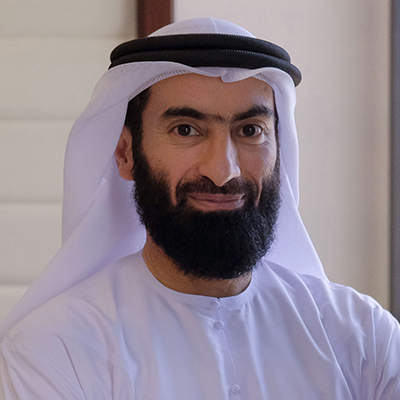

Director General, Dubai Government Human Resources Department
Ali Al Shouk | Senior Reporter
Remote work, the ability to work from outside the office, has been around for several years but gained popularity when COVID-19 crippled large parts of the world. Work from home became the norm, and Dubai was quick to adapt to it to keep the economy buzzing.
Amid the pandemic, Dubai Government departments implemented in March last year a remote work plan, approved by Sheikh Hamdan bin Mohammed bin Rashid Al Maktoum, Crown Prince of Dubai and Chairman of Dubai Executive Council. That was made possible by a state-of-the-art telecommunication infrastructure.
Dubai’s futuristic plan allows the government to function and deal with any crisis, disaster or pandemic, Abdullah Ali Zayed Al Falasi, Director General of the Dubai Government’s Human Resources Department (DGHR), told Gulf News. Between March and June last year, government departments resorted to remote working as part of measures to prevent the spread of COVID-19.
“It was a resounding success. Performance rates among the employees were so high that remote working systems could be used even under normal conditions,” Al Falasi said.
According to official statistics, 80 per cent of non-field employees at Dubai Government were working from home. In the first week, 12 government entities implemented 100 per cent remote working. The number rose to 56 entities in the fourth week, and by May 2021 it reached 82.
Dubai has always been swift to adopt newer technologies and smart transformation strategies. Since an advanced telecom infrastructure was already in place, the switch to remote working was quick and efficient.
“Dubai Government staff became a model for implementing the COVID-19 safety protocol,” Al Falasi said.
Each department’s director-general was tasked with chalking out a system to work remotely according to the job requirements. It gave directors-general and direct-line managers the power to assign employees to work remotely.
“The directives from our leaders were clear: An employee should continue his or her work remotely to reduce his or her movements, in line with the instructions of the National Crisis and Emergency Management Authority,” Al Falasi said. “Dubai was so successful that it ranked second behind San Francisco in the list of best cities in the world where people were working remotely in 2020.” The list, drawn up by CEOWORLD magazine, analysed 60 large cities around the world to figure out the best locations for remote working.
How DGHR coped with the pandemic
In June 2020, DGHR sent out protocols to all its entities to ensure the safety of employees who were returning to workplaces. The measures included mandatory wearing of masks at all times and avoiding physical greetings like handshakes. Employees were advised to keep a distance of two metres from each other, wash hands frequently with soap for 20 seconds and leave vehicle windows rolled down for 15 minutes while driving to work.
“The list of measures included the use of electronic channels and workshops to spread awareness and provide mental support for employees,” Al Falasi said. “We dissuaded employees from sharing tools or machines and encouraged them to use hand sanitisers. Employees were divided into two teams. One team would work from the offices for one week while the other team would work from home. Then the order would be reversed the next week and the pattern would continue. We provided an isolation room for anyone who showed symptoms [of COVID-19 infection].”
Al Falasi praised the employees’ commitment to follow preventive measures that helped flatten the curve of infections in Dubai.
Flexible working hours
To improve productivity and boost employees’ happiness, Dubai implemented flexible working hours from August last year. Workdays were flexible as long as they covered the stipulated working hours daily. Al Falasi said the human resource departments in government entities amended their regulations on attendance and working hours to accommodate the new work pattern.
“The decision also helped ensure the safety of employees — especially during adverse weather conditions — and reduce traffic congestion during peak hours,” Al Falasi added.
What are the steps to be implemented post-COVID-19?
According to Al Falasi, human resources development will witness a major overhaul in the post-COVID-19 pandemic scenario, especially since remote working has proved to be such a success. “Dubai Government entities are ready for a post-COVID-19 reality. New legislations have been put forward for remote working to resolve any problems arising from the new work environment,” he added.
The workplace sure has changed. The mode of working has changed. COVID-19 may fade away, but remote working is here to stay.
Abdullah Ali Zayed Al Falasi, Director General, Dubai Government Human Resources Department.